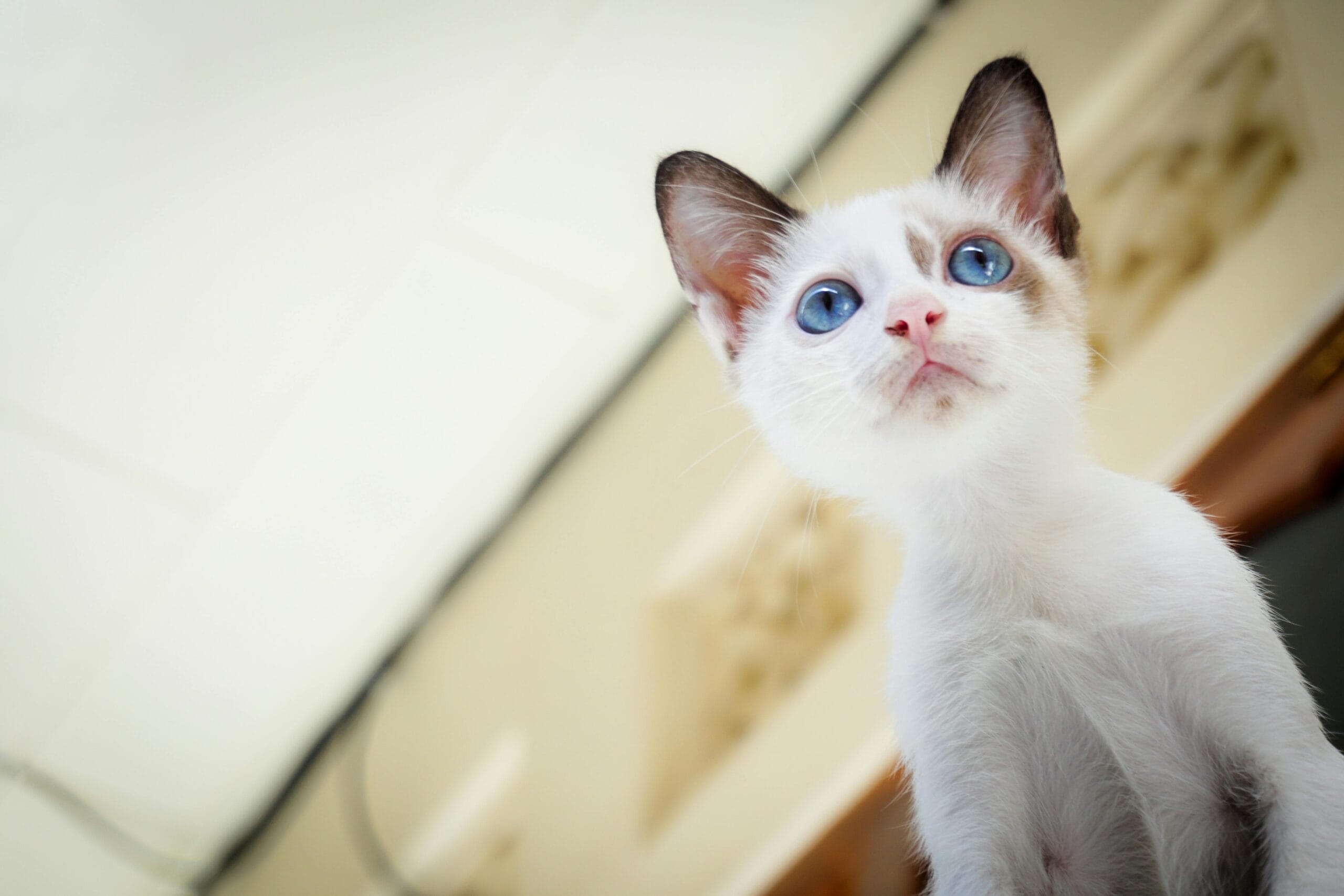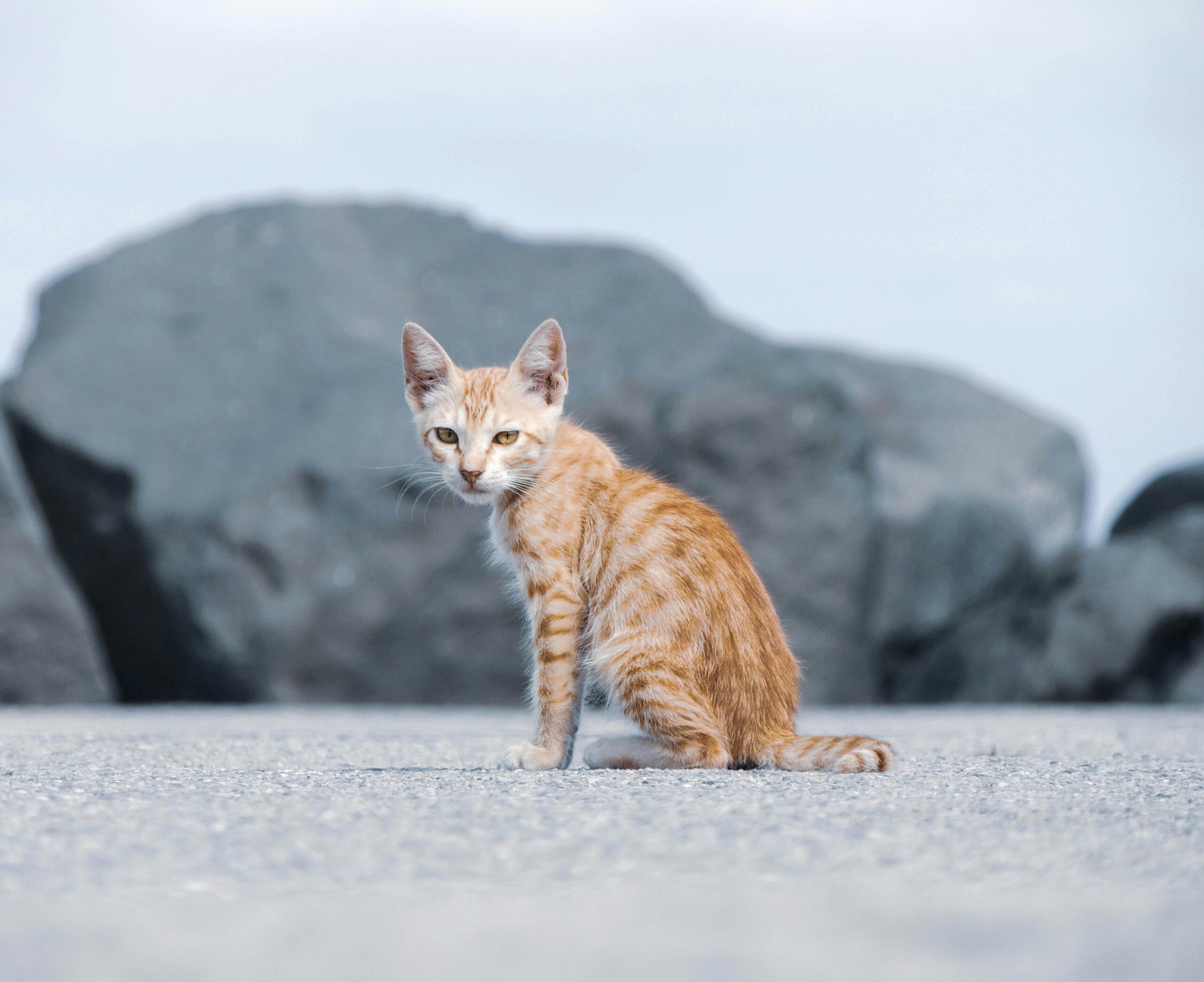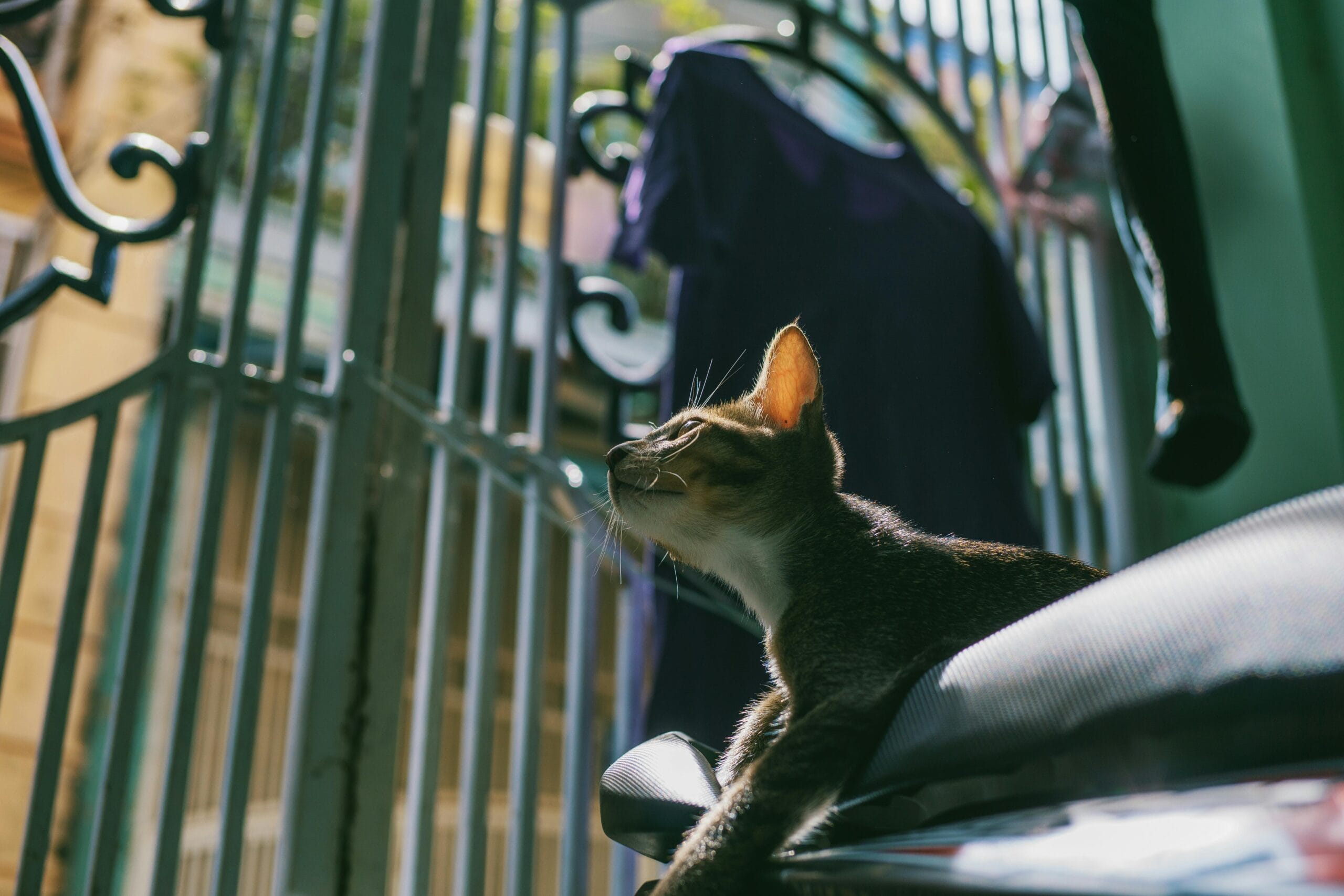Why Is My Cat Licking Me ?

Why is my cat licking me? Understand excessive cat licking & cat affection licking. Discover the reasons behind your cat’s behavior & what it means. Learn now!
Why Is My Cat Licking Me? Decoding Feline Affection and Beyond
The gentle, sandpapery rasp of a cat’s tongue on your skin. It’s a common experience for cat owners, but the question, “Why is my cat licking me?,” often remains unanswered. Is it affection? Grooming? Something else entirely? Understanding your cat’s licking behavior is crucial for strengthening your bond and ensuring their wellbeing. This comprehensive guide dives deep into the various reasons behind feline licking, exploring the spectrum from heartwarming affection to potential underlying health concerns.
**Cat Affection Licking: The Sweetest of Reasons**
For many cat owners, the most common and welcome explanation for a cat licking them is simple affection. Just as we show love through hugs and kisses, cats express their bond through grooming. Cat affection licking is a sign that your cat feels comfortable, safe, and connected to you. They see you as part of their family and are demonstrating their love in their own unique way. This licking often targets specific areas, such as your face, hands, or even your hair. The frequency and intensity can vary depending on the cat’s personality and the strength of your bond. Some cats may offer a quick lick, while others might engage in a longer, more thorough grooming session.
However, it’s important to differentiate between affectionate licking and other forms of licking behavior. While gentle licking is a positive sign, excessive or obsessive licking could indicate underlying issues. We’ll explore this further in the sections below.
**Grooming: A Natural Instinct**
Beyond affection, cats lick as a natural grooming behavior. They maintain their hygiene and coat condition through meticulous self-grooming, and sometimes this extends to their favorite humans. They might lick you to remove loose hair, dander, or even sweat from your skin. This is particularly common if you have long hair or frequently wear clothing that sheds easily. Think of it as a feline version of a loving cleanup crew! This behavior isn’t necessarily a direct expression of affection, but rather an extension of their innate grooming instincts.
**Taste and Scent: The Unsung Reasons**
Believe it or not, your cat’s licking might be driven by your taste and smell. Cats have unique olfactory preferences, and they might find your skin’s scent or the residual taste of food or lotion intriguing. This is less common than affection-based licking but can play a role, especially if the licking is focused on specific areas of your body with a distinct scent.
**Stress and Anxiety: When Licking Becomes Excessive**
While cat affection licking is usually a positive sign, cat licking excessive behavior can point towards underlying stress or anxiety. If your cat is suddenly licking you more frequently or intensely than usual, consider potential stressors in their environment. Changes in routine, new pets or people, loud noises, or even a change in their food can trigger anxiety, which may manifest as increased grooming, including licking their human companions. This type of licking may appear obsessive or compulsive, and it’s important to identify and address the underlying cause.
**Medical Conditions: Understanding Underlying Issues**
In some cases, excessive cat licking can be a symptom of a medical condition. Allergies, skin irritations, or even pain can cause cats to lick themselves and their owners excessively. If you notice any unusual skin changes, hair loss, or changes in your cat’s behavior, it’s crucial to consult a veterinarian. They can help rule out any underlying medical issues and provide appropriate treatment. A thorough veterinary examination is particularly important if the licking seems compulsive, self-directed, or accompanied by other symptoms like scratching, biting, or vocalization. For further information on feline dermatology, you may wish to consult resources like the website of the American College of Veterinary Dermatology, American College of Veterinary Dermatology.
**Maternal Instincts: A Mother’s Touch**
Female cats who have recently given birth may lick their human companions as an extension of their maternal instincts. This licking may resemble grooming, but it’s driven by the instinct to clean and care for their young. While this behavior is usually temporary, it’s important to understand its context and be patient as your cat adjusts to motherhood or to a new environment.
**Seeking Attention: A Clever Strategy**
Let’s face it, cats are masters of manipulation! Sometimes, cat licking excessive behavior can be a clever tactic to get attention. If your cat is seeking attention, you can usually tell from the context of their behavior. If they lick you immediately after you’ve ignored them, you might need to give them a little more attention at times when they seem to be searching for it. Positive reinforcement, such as gentle petting or playful interaction, is usually the best response. However, always keep the overall behaviour of your cat in mind to avoid inadvertently reinforcing unwanted behaviours, such as inappropriate licking.
**Understanding Your Cat’s Body Language**
To fully understand your cat’s licking behavior, pay attention to their overall body language. Is their tail relaxed and their eyes soft, suggesting contentment and affection? Or are they tense, their ears flattened, and their tail swishing, indicating anxiety or stress? The context of the licking is crucial. Combine your observations of their licking behavior with their overall posture and demeanor for a more accurate interpretation.
**When to Seek Veterinary Advice**
While some licking is perfectly normal and even endearing, certain situations warrant a visit to the veterinarian. If you notice any of the following, it’s time to seek professional help:
- Excessive licking to the point of self-harm or causing hair loss
- Sudden onset of increased licking
- Licking accompanied by other symptoms, such as scratching, vomiting, diarrhea, or changes in appetite
- Visible skin irritations or lesions
- Licking coupled with changes in behavior, such as lethargy or aggression
Early intervention can significantly improve your cat’s health and well-being. For more information on feline behavior problems, you might want to consult the resources provided by the ASPCA (American Society for the Prevention of Cruelty to Animals).
**Conclusion: A Deeper Understanding of Your Feline Friend**
Understanding why is my cat licking me requires a holistic approach. It’s a multifaceted behavior with roots in affection, grooming, stress, and sometimes underlying medical conditions. By carefully observing your cat’s behavior, body language, and overall health, you can decipher the meaning behind their licks and strengthen your bond. Remember that consulting a veterinarian is crucial if you suspect a medical issue or if the licking becomes excessive or concerning.
Understanding the nuances of cat affection licking and cat licking excessive behaviors allows you to better care for your beloved feline companion. It’s a testament to the complex and often endearing communication styles that our furry friends employ. With patience and attention, you can unravel the mysteries of your cat’s licking habits and build a stronger, healthier relationship.
Share Your Experiences!
Have you experienced excessive licking from your cat? Share your stories and insights in the comments below! Let’s learn from each other and unravel the mysteries of feline affection and licking together. Use keywords like “Why is my cat licking me,” “Cat licking excessive,” or “Cat affection licking” in your comments to help other cat owners find relevant information.

Why Is My Cat Licking Me? Practical Tips and Health Considerations
Cats lick their humans for a variety of reasons, some endearing, some potentially concerning. Understanding the “why” behind this behavior is crucial for maintaining a healthy bond and addressing any underlying issues.
Reasons Your Cat Might Be Licking You:
- Grooming: Cats groom each other as a sign of affection and social bonding. They may extend this behavior to you, viewing you as part of their social group. This is usually a harmless and positive sign.
- Affection and Bonding: Licking can be a cat’s way of showing love and attachment. It’s their way of saying “I care about you”.
- Taste: Your skin might have a salty taste that your cat finds appealing. This is especially true after sweating or applying lotions.
- Stress or Anxiety: Excessive licking can sometimes indicate stress or anxiety in your cat. Changes in the environment, new pets, or even loud noises can trigger this behavior.
- Medical Conditions: In some cases, excessive licking can be a symptom of underlying medical issues, such as allergies, hormonal imbalances, or obsessive-compulsive disorder. Consult your veterinarian if you notice significant changes in licking behavior.
Health Considerations and Practical Tips:
While occasional licking is usually normal, excessive licking or changes in your cat’s licking habits warrant attention:
- Observe the Frequency and Intensity: Is your cat licking you excessively or only occasionally? Note any changes in behavior.
- Monitor for Other Symptoms: Pay attention to other signs such as changes in appetite, litter box habits, or energy levels. These might indicate underlying health problems.
- Maintain Good Hygiene: Keeping yourself clean helps to minimize any attraction to your skin’s taste or smell for your cat.
- Provide Enrichment: Ensure your cat has plenty of toys, scratching posts, and climbing opportunities to reduce stress and boredom.
- Veterinary Check-up: If you’re concerned about excessive or unusual licking, schedule a visit to your veterinarian. They can rule out any underlying medical issues.
- Positive Reinforcement: Reward your cat for positive behaviors, such as gentle petting, to redirect attention from excessive licking.
SEO Keywords:
cat licking, cat licking owner, why does my cat lick me, cat behavior, cat grooming, excessive cat licking, cat licking health, cat anxiety, feline obsessive compulsive disorder, vet visit cat, cat health issues

Why is my cat licking me excessively?
Does my cat licking me mean they love me?
Why is my cat licking my face?
Why does my cat lick my hands so much?
Is my cat licking me because they’re grooming me?
My cat licks me then bites gently, why?
Why does my cat lick my hair?
When should I worry about my cat licking me excessively?
Why is my cat suddenly licking me more than usual?
How can I discourage excessive cat licking?